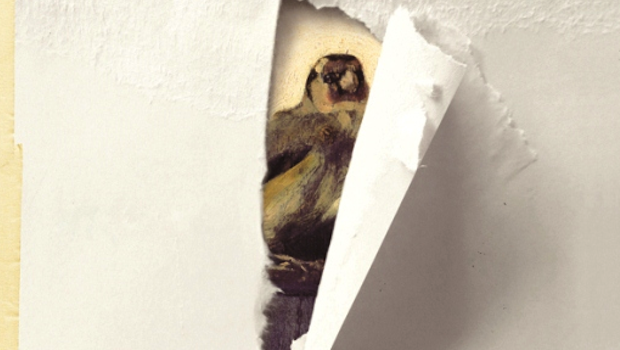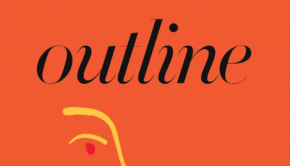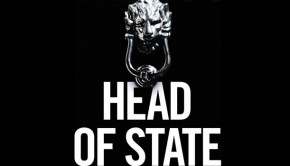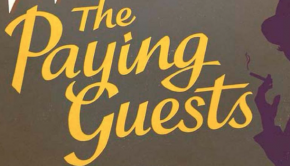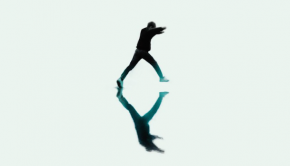The Goldfinch by Donna Tartt
| Press reviews | Buy the book | Have your say |
Blurb: Aged thirteen, Theo Decker, son of a devoted mother and a reckless, largely absent father, survives an accident that otherwise tears his life apart. Alone and rudderless in New York, he is taken in by the family of a wealthy friend. He is tormented by an unbearable longing for his mother, and down the years clings to the thing that most reminds him of her: a small, strangely captivating painting that ultimately draws him into the criminal underworld. As he grows up, Theo learns to glide between the drawing rooms of the rich and the dusty antiques store where he works. He is alienated and in love – and his talisman, the painting, places him at the centre of a narrowing, ever more dangerous circle. (Little, Brown, 2013)
Catherine Taylor, The Telegraph
“In a fiction of almost 800 pages the narrative arc has to be sustained. Its first half is essentially a Bildungsroman along the lines of Great Expectations, with similar gothic multilayering, eccentric guardians and unrequited love. Theo’s grief for his mother is so tangible the pages appear tear-sodden … Theo will later be inveigled into the murky underworld of art felony, leading to a showdown in Amsterdam. This is the most preposterous part of the novel. However, bearing in mind that the entire book revolves around a stolen painting which in reality hangs peaceably in The Hague’s Mauritshuis, one has already accepted the conceit, and Tartt pulls it off with a suspenseful flourish.”
Kamila Shamsie, The Guardian
“Plot and character and fine prose can take you far – but a novel this good makes you want to go even further. The last few pages of the novel take all the serious, big, complicated ideas beneath the surface and hold them up to the light. Not for Tartt the kind of clever riffs, halfway between standup comedy and op-ed columns, which are too commonly found in contemporary fiction. Instead, when plot comes to an end, she leads us to a place just beyond it – a place of meaning, or, as she refers to it, “a rainbow edge … where all art exists, and all magic. And … all love.”"
Boyd Tonkin, The Independent
“Lavish and lush in décor and span (at 771 pages), as highly wrought, romantic and even sentimental as Tartt’s detractors will fear and her much more numerous admirers will hope, The Goldfinch nonetheless turns on a few breathless “time-warp” moments. Prompted by art of one kind or another, these freezed frames halt the flow of life as beauty – or its cognate, love – “comes into being”. Dickens has swiftly emerged as the kneejerk comparison for this novel. True, in many ways. But don’t overlook another writer, also enchanted by the art of Delft: Proust.”
Michiko Kakutani, The New York Times
“It’s a work that shows us how many emotional octaves Ms. Tartt can now reach, how seamlessly she can combine the immediate and tactile with more wide-angled concerns — how she can tackle the sort of big, philosophical questions addressed by the Russian masters even as she’s giving us a palpable sense, say, of what it’s like to be perilously high on medical-grade painkillers, or a lesson in distinguishing real antiques from fakes … But it’s not just narrative suspense that drives this book; it’s Theo and Boris, the stars of this enthralling novel, who will assume seats in the great pantheon of classic buddy acts (alongside Laurel and Hardy, Vladimir and Estragon, and Pynchon’s Mason and Dixon), taking up permanent residence in the reader’s mind.”
Geoff Nicholson, The L.A. Times
“Reading The Goldfinch, there were times when I did wonder if Tartt was indulging in post-modernist games with the reader, playing spin the bottle among various literary genres: coming-of-age novel, addict’s confession, art heist, unrequited love story, Dickensian panorama. (There are a number of explicit references to Dickens in the book.) But no, I think she really isn’t that kind of writer. She touches all these extravagantly diverse bases because she can and because the novel demands it. There are bravura descriptions of landscapes and cities, shrewd dissections of human motivations and self-deceptions, convincing and sometimes very witty dialogue spoken by characters from wildly different backgrounds.”
James Kidd, The Independent
“Theo’s skill at “misdirection” inspires some cunning plot twists, but the real mystery is revealed to be his enduring grief and guilt for his parents. In this, the slow accumulation of Tartt’s obsessive narration becomes profoundly moving. The Goldfinch asks how humans facing the “fundamental chaos and uncertainty of the world” restore themselves after loss. By burying problems, or by searching for the sustaining consolations of love, art and friendship? … a gripping page-turner and a challenging, beautifully written account of modern life. Moving but unsentimental, funny without being trite, all human life is here.”
Victoria Moore, The Daily Mail
“I actually don’t want to give away what happens next, because the layers of shock are so forensically and brilliantly drawn that you experience them almost in slow motion along with Theo.”
Stephen King, The New York Times
“We get Dickensian dollops of suspense — most notably a hair-raising Nighttown adventure in pursuit of dangerous gangsters — and plenty of brilliant characterization. Of Mrs. Barbour, for instance: “Even when she was standing right next to you she sounded as if she were relaying transmissions from Alpha Centauri.””
Alex O’Connell, The Times
“At times it feels like a European art-house triple-bill has segued into a high-octane action movie, as though Tartt is going too fast, racing to tie up ends. But this is nitpicking. The Goldfinch is an enormous book, in every sense. It’s Dickens with guns, Dostoevsky with pills, Tolstoy with antiques.”
David Sexton, London’s Evening Standard
“It’s sometimes overwritten and a little bit formless. It could have been shorter. It’s not perfect. But it’s a lovely book … Very few modern novelists write character-driven fiction any more: Donna Tartt is a rare exception. Even minor characters (a Dickensian lawyer called Mr Bracegirdle, a courtly Jewish enforcer called Mr Silver) shine with life.”
Jane Shilling, New Statesman
“The Goldfinch is without doubt a beguiling novel. It is smart – in both the American and the British senses of that word – brilliantly readable, thrilling and touching. It contains some ravishingly beautiful writing about objects and about cities; New York and Amsterdam appear as characters in their own right. But there is a sense – engendered, perhaps, by the sheer length of time between novels – that Tartt’s ambition extends beyond the writing of very stylish, engaging and literate bestsellers.”
Emily Stokes, The Financial Times
“The Goldfinch is impressive – lavish, gripping, exciting – and yet somehow, like one of the “changeling” pieces of furniture made by Hobie from odds and ends which Theo (in secret) tries to fob off as real, its overall effect doesn’t quite convince – its worlds too diverse and neatly juxtaposed not to raise suspicion. Tartt’s prose, always lush, can sag under its own decoration; the register, too, slides between Sebaldian cool and teenage slang (“I was going to miss them but it seemed gay to come out and say so”).”
Jonathan Lee, Literary Review
“This is the story of a bespectacled, gifted, orphaned boy grieving the tragic death of his parents, growing into a risky new maturity, seeking to overcome adversities in a world not quite his own… Ring any bells? You have to admire Tartt’s sense of play here but, by the end of the book, when the plot begins to creak and Theo gets into gunfights with big-league art criminals, it’s not altogether helpful to have Daniel Radcliffe in mind. The painter behind The Goldfinch is interested in ‘tak[ing] [an] image apart very deliberately to show us how he painted it’, and so is Tartt. But the self-consciousness sometimes obscures the more interesting questions this big and pleasurable book has to offer, namely whether ‘the pursuit of pure beauty is a trap, a fast track to bitterness and sorrow’…”
Philip Hensher, The Spectator
“The main problem with The Goldfinch is that it asserts lovability and wit without ever successfully enacting either. We are told, for instance, that Theo’s mother is a wonderful person, but when she speaks she seems quite boring. Hobie shares ‘the most enjoyable conversation’ with Theo when they first meet, but this turns out to be a routine exchange about school study. Boris can make Theo ‘laugh sometimes until my sides ached, and we always had so much to say’, but he doesn’t delight the reader at all. And Pippa, Theo’s great love, is first a ladylike invalid out of Tennessee Williams, and then nothing very much.”
Peter Kemp, The Sunday Times
“The Goldfinch can read like a parody of a crime thriller. The solution to the predicament presented by Theo’s possession of the painting is glaringly obvious hundreds of pages before it is finally realised. The exorbitant amount of detail Theo heaps into his narrative is explained away with equal clumsiness when he belatedly discloses to the reader that he isn’t writing “from memory” but, for the past 15 years, has been keeping extensive records … In this novel, creepy lowlifes — hitmen, conmen, fakers — are opposed to beglamoured art-lovers. Fervent pages pay throbbingly emotional tribute to the latter and art’s power to soar above death and corruption. But no amount of straining for high-flown uplift can disguise the fact that The Goldfinch is a turkey.”
Julie Myerson, The Observer
“Close to the end of a monotonous 800-page novel, I was truly perplexed. Nothing wrong, I suppose, with a Harry Potter homage, but it’s hard for an adult reader to be gripped by a tale with no real subtext and peopled entirely by Goodies and Baddies … But maybe none of this would matter much if the writing itself were sharp and pacy, light on its feet. Unfortunately it’s leaden, bereft of any attitude or attack, vision or edge.”
Buy the book
Amazon | Foyles | Hive | Waterstones

